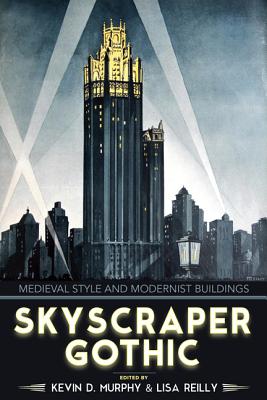Of all building types, the skyscraper strikes observers as the most modern, in terms not only of height but also of boldness, scale, ingenuity, and daring. As a phenomenon born in late nineteenth-century America, it quickly became emblematic of New York, Chicago, and other major cities. Previous studies of these structures have tended to foreground examples of more evincing modernist approaches, while those with styles reminiscent of the great Gothic cathedrals of Europe were initially disparaged as being antimodernist or were simply unacknowledged. Skyscraper Gothic brings together a group of renowned scholars to address the medievalist skyscraper—from flying buttresses to dizzying spires; from the Chicago Tribune Tower to the Woolworth Building in Manhattan.
Drawing on archival evidence and period texts to uncover the ways in which patrons and architects came to understand the Gothic as a historic style, the authors explore what the appearance of Gothic forms on radically new buildings meant urbanistically, architecturally, and socially, not only for those who were involved in the actual conceptualization and execution of the projects but also for the critics and the general public who saw the buildings take shape.
Contributors:
Lisa Reilly on the Gothic skyscraper ? Kevin Murphy on the Trinity and U.S. Realty Buildings ? Gail Fenske on the Woolworth Building ? Joanna Merwood-Salisbury on the Chicago School ? Katherine M. Solomonson on the Tribune Tower ? Carrie Albee on Atlanta City Hall ? Anke Koeth on the Cathedral of Learning ? Christine G. O’Malley on the American Radiator Building












